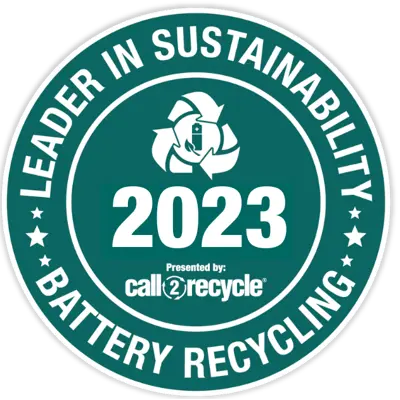Household Hazardous Waste
Leader in Sustainability Award
We were honoured to receive a 2023 Leader in Sustainability Award for our battery recycling program. Read the news release.
There is no charge for residents to drop off household hazardous waste. We accept electronics, batteries, paint cans, propane cylinders and more. Be sure to check the full list of Acceptable Materials before loading your vehicle and follow the directions of attendants when removing your hazardous materials.
Location: 2491 Keeley Road
Winter Hours: Beginning of November - End of March: Second and fourth Thursday of each month from 3pm-7pm.
Summer Hours: Beginning of April - End of October: Every Thursday from 3pm - 8pm.
For 2026, winter hours for the Household Hazardous Waste Depot will run the second and fourth Thursday of each month from 3 pm - 7 pm.
Winter Dates for the Household Hazardous Waste Depot are:
January 8 & 22
February 12 & 26
March 12 & 26
The HHW will return to summer hours Thursday, April 2, 2026 at 3 pm.

eWaste
Our Household Hazardous Waste depot accepts eWaste, including computers, televisions, printers, cell phones, cameras, stereo equipment, etc. See the full list of Acceptable Materials for details. E-waste includes any equipment that has an electrical source such as a power socket or battery. The electronic waste that we produce can be grouped into three main categories:
- Small equipment like vacuum cleaners and toasters,
- Large equipment such as washing machines, (not accepted at our HHW)
- Electronic and communication technology like televisions; computers; cellphones.
When you bring your old, end-of-life electronics to EPRA-authorized locations, you’re helping to:
- Keep electronics out of landfills
- Prevent them from being illegally exported or handled by irresponsible recyclers
- Recover and recycle valuable resources that can be put back into the manufacturing supply chain
Always remember to clear your computers, cell phones, gaming devices and electronics of all confidential or personal information. See the owner's manual for instructions.
Contact Us
Township of
South Frontenac
Solid Waste
2490 Keeley Rd
Sydenham ON, K0H 2T0
T: 613-376-3027
TF: 1.800-559-5862
(if calling within the
613 area code)
fswsupport@southfrontenac.net
Sign up to receive our monthly newsletter
Stay up to date on Township news, events and projects by subscribing to our monthly newsletter.
